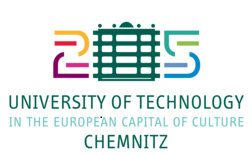The Views of Classroom Teachers with the Title of Head Teacher on Citizenship Education
DOI:
https://doi.org/10.71514/jssal/2024.130Keywords:
Citizenship, , citizenship education, , classroom teachersAbstract
The aim of this study is to reveal the experiences and opinions of primary school teachers with the title of head teacher about citizenship education. Qualitative method was used in this study. The participants of the study consisted of 25 classroom teachers with the title of head teacher working in 14 primary schools. Data were obtained through semi-structured interviews with the participants. The data were analyzed by content analysis. As a result of the research, it was seen that teachers defined citizenship education as establishing social rules, giving individuals a sense of duty, gaining necessary responsibilities, and understanding rights. They stated the purpose of citizenship education as fulfilling citizenship duties, raising desirable citizens, raising individuals who are beneficial to their family and nation, and ensuring social order. In addition, it was concluded that citizenship education is mostly given in life science, social studies, and Turkish lessons. Furthermore, it was concluded that citizenship education was mostly given with the subjects of national values and citizenship duties. While conducting citizenship education, teachers use activities such as making sample choices, assigning duties and responsibilities, using visuals such as movies, videos, and drama in the classroom, while organizing institutional visits outside the classroom. According to teachers, citizenship education should help students acquire values such as respect, obeying rules, patriotism, morality, honesty, and responsibility. Teachers see the lack of application of the information learned in citizenship education, the lack of practical training, and social media as problems.
Downloads
References
Açıkel, Z. (2022). Okul Öncesinde Vatandaşlık Eğitiminin Program ve Öğretmen Görüşleri Açısından İncelenmesi [Examination of Preschool Citizenship Education in Terms of Program and Teachers' Views, Master’s Thesis]. Nevşehir Hacı Bektaş Veli Üniversitesi, Sosyal Bilimler Enstitüsü.
Aktaş, V., & Ayaydın, Y. (2023). Sosyal Bilgiler Öğretmenlerinin Küresel Vatandaşlık Eğitimi ile İlgili Görüşlerinin İncelenmesi. [An Investigation of Social Studies Teachers Opinion of Global Citizenship Education]International Journal of Social Science Research, 12(1), 134-154. https://dergipark.org.tr/en/download/article-file/3206405
Alshenqeeti, H. (2014). Interviewing as a data collection method: A critical review. English linguistics research, 3(1), 39-45. https://doi.org/10.5430/elr.v3n1p39
Arslan, K. (2022). Velilerin Bakış Açılarına Göre Vatandaşlık Eğitimi. [Citizenship education according to parents' views, Master’s Thesis]. Sakarya Üniversitesi, Eğitim Bilimleri Enstitüsü.
Aslan, A. K. (2001). Eğitimin toplumsal temelleri. [Social Bases Of The Education] Balıkesir Üniversitesi Sosyal Bilimler Enstitüsü Dergisi, 4(5), 16-30. https://dergipark.org.tr/en/download/article-file/864529
Bademci, M., Çam, O., Çevik, V., & Gülşen, R. (2023). Öğretmenlerin örgütsel vatandaşlık algıları. [Teachers' Perceptions of Organizational Citizenship] Ulusal Eğitim Dergisi, 3(2), 295–305. https://uleder.com/index.php/uleder/article/view/180
Bakioğlu, A. & Kurt, T. (2016). Eğitimde demokrasi vatandaşlık ve vatanseverlik. [Democracy, Citizenship and Patriotism in Education] Nobel Akademik Yayıncılık.
Balibar, E. (1988). Propositions on citizenship. Ethics, 98(4), 723-730.
Beldağ, A. (2012). İlköğretim Yedinci Sınıf Sosyal Bilgiler Dersindeki Değerlerin Kazanılma Düzeyinin Çeşitli Değişkenler Açısından İncelenmesi: Erzurum İli Örneği [The examination of acquirement level of values in social studies lesson elementary 7th grade in terms of different variables: Sample for the province Erzurum, Doctoral Dissertation]. Atatürk Üniversitesi, Eğitim Bilimleri Enstitüsü.
Berg, B. L., & Lune, H. (2019). Sosyal bilimlerde nitel araştırma yöntemleri. [Qualitative Research Methods in Social Sciences]. Eğitim Yayınevi.
Bıçak, İ. (2018). Öğretmenlerin vatandaşlık eğitimi ve vatandaşlık eğitimi sürecine yönelik görüşlerinin analizi [An analysis of teachers' views on citizenship education and the citizenship education process, Master’s Thesis]. Gazi Üniversitesi Eğitim Bilimleri Enstitüsü.
Bıçak, İ. & Ereş, F. (2018). Öğretmenlerin vatandaşlık eğitimi ve vatandaşlık eğitimi sürecine yönelik görüşleri. [Teachers’ Views Concerning Citizenship Education and the Citizenship Education Process]. Türk Eğitim Bilimleri Dergisi, 16(2), 257-279. https://dergipark.org.tr/en/download/article-file/611156
Boadu, K. (2013). Teachers’ perception on the importance of teaching citizenship education to primary school children in Cape Coast, Ghana. Journal of Arts and Humanities, 2(2), 137-147. https://doi.org/10.18533/journal.v2i2.77
Campbell, DE, Levinson, M. ve Hess, FM (Ed.). (2012). Making civics count: Citizenship education for a new generation . Harvard Education Press.
Ceylan, Ş. (2014). Okul Öncesi Öğretmenlerinin Dünya Vatandaşlığı Eğitimi İle İlgili Görüşleri. [Preschool Teachers' Views on World Citizenship Education.] Journal of Theoretical Educational Science/Kuramsal Eğitimbilim Dergisi, 7(1). Doi:10.5578/keg.6211
Çelik, H. (2009). Sosyal bilgiler öğretmenlerinin vatandaşlık eğitiminin bugünkü durumu ve geleceğine ilişkin görüşleri. [Views of social studies teachers related to the present circumstance and future of citizenship education, Dpctoral Dissertation]. Marmara Üniversitesi, Eğitim Bilimleri Enstitüsü.
Çermik, F., Çalışoğlu, M., & Tahiroğlu, M. (2016). Sınıf Öğretmenlerinin Küresel Vatandaşlık Eğitimi İle İlgili Görüşlerinin İncelenmesi. [Analysis of the Opinions of Primary- School Teachers About the Global Citizenship Education]. Electronic Turkish Studies, 11(3). https://www.acarindex.com/pdfler/acarindex-4ffcab98-1d81.pdf
Durmuş, M., Ş. (2020). Ortaokul sosyal bilgiler müfredatında vatandaşlık eğitimi yaklaşımı ve öğretmen görüşleri. [Citizenship education approach and teacher views in secondary school social studies curriculum, Master’s Thesis]. Yıldız Teknik Üniversitesi Sosyal Bilimler Enstitüsü.
Dusi, P., Steinbach, M., & Messetti, G. (2012). Citizenship education in multicultural society: Teachers’ practices. Procedia-Social and Behavioral Sciences, 69, 1410-1419. https://doi.org/10.1016/j.sbspro.2012.12.080
Ekici, Ö. (2018). Ortaokullarda Vatandaşlık Eğitiminde Yaşanan Sorunlara İlişkin Sosyal Bilgiler Öğretmenlerinin Görüşleri. [Social Studies Teachers' Opinions on the Problems in Citizenship Education at Secondary Schools, Doctoral Dissertation]. Atatürk Üniversitesi, Eğitim Bilimleri Enstitüsü.
Elkatmış, M. (2013). 1998 Vatandaşlık ve insan hakları eğitimi programı ile 2010 vatandaşlık ve demokrasi eğitimi programlarının karşılaştırılması. [The Comparison of 1998 Citizenship and Human Rights Education Syllabus and 2010 Democracy Education Teaching Program]. Ahi Evran Üniversitesi Kırşehir Eğitim Fakültesi Dergisi, 14(3), 59-74. https://dergipark.org.tr/en/download/article-file/1490505
Ersoy, A. F. (2015). Sosyal bilgiler dersinde öğretmenlerin etkili vatandaşlık eğitimi uygulamalarına ilişkin görüşleri. [Teachers' Views on Effective Citizenship Education Practices in Social Studies Course]. Anadolu University.
Ersoy, A. F. (2016). Vatandaşlık ve demokrasi eğitimi dersine ilişkin sosyal bilgiler öğretmenleri ve öğrencilerinin algısı. [Social Studies Teachers' and Students' Perception of the Citizenship and Democracy Education Course]. İnönü Üniversitesi Eğitim Fakültesi Dergisi, 17(3), 67-83. https://dergipark.org.tr/en/download/article-file/267735
Ersoy, A., F. (2007). Sosyal bilgiler dersinde öğretmenlerin etkili vatandaşlık eğitimi uygulamalarına ilişkin görüşleri. [The Opinions of Teacher Regarding the Practices of Effective Citizenship Education in Social Studies Course, Doctoral Dissertation]. Anadolu Üniversitesi Eğitim Bilimleri Enstitüsü.
Eurydice (2005). Citizenship Education at School in Europe. Brussels.
Eurydice (2012). Avrupa’da vatandaşlık eğitimi [Citizenship Education in Europe]. Accessed on 20.09.2023 http://sgb.meb.gov.tr/eurydice/kitaplar/Avrupada_Vatandaslik_Egitimi/Avrupada_Vatandaslik_Egitimi_highlights.pdf
Evans, M. (2006). Educating for citizenship: What teachers say and what teachers do. Canadian Journal of Education/Revue canadienne de l'éducation, 410-435.
Geboers, E., Geijsel, F., Admiraal, W. ve Ten Dam, G. (2013). Vatandaşlık eğitiminin etkilerinin gözden geçirilmesi. [Reviewing the Impact of Citizenship Education]. Eğitim Araştırmaları İncelemesi , 9 , 158-173.
Gül, G. (2004). Birey toplum eğitim ve öğretmen. [Individual, Society, Education and Teacher]. HAYEF Journal of Education, 1(1). https://dergipark.org.tr/en/download/article-file/93027
Güven, S. (2002). İlköğretim 7. ve 8. Sınıflarda Okutulmakta Olan Vatandaşlık ve İnsan Hakları Dersini Veren Öğretmenlerin Nitelikleri ve Derste Karşılaştıkları Problemler. [7th-8th Grades Citizenship and Human Rights Courses Teachers Effectiveness and Their Problems in Teaching: Erzincan Sample, Master’s Thesis]. Atatürk Üniversitesi, Sosyal Bilimler Enstitüsü.
Güven, S., Tertemiz, N., & Bulut, P. (2009). Vatandaşlık ve vatandaşlık eğitimine yönelik sınıf öğretmenlerinin görüşleri. [Views of Class Teachers on Citizenship and Citizenship Education]. Karadeniz Sosyal Bilimler Dergisi, 1(1), 149-170.
Heater, D. (2002). The history of citizenship education: A comparative outline. Parliamentary Affairs, 55(3), 457-474.
Hoge, JD (2002). Karakter eğitimi, vatandaşlık eğitimi ve sosyal bilgiler. Sosyal bilgiler , 93 (3), 103.
Karasu Avcı, E., Faiz, M., & Turan, S. (2020). Etkili vatandaşlık eğitiminde değerler eğitimi: Sosyal bilgiler öğretmenlerinin düşünceleri. [Values Education in Effective Citizenship Education: Thoughts of Social Studies Teachers]. Değerler Eğitimi Dergisi, 18(39), 263-296. https://doi.org/10.34234/ded.655916
Karataş Z. (2017). Sosyal Bilim Araştırmalarında Paradigma Değişimi: Nitel Yaklaşımın Yükselişi, [Paradigm Transformation in Social Sciences Research: Rise Of Qualitative Approach]. Türkiye Sosyal Hizmet Araştırmaları Dergisi, 1(1), 68- 86. https://dergipark.org.tr/en/download/article-file/360845
Keating, A. (2014). Education for citizenship in Europe: European policies, national adaptations and young people's attitudes. Springer.
Kerr, D. (1999). Citizenship education: An international comparison. Qualifications and Curriculum Authority.
Kondu, Z., & Sakar, T. (2013). Vatandaşlık Ve Demokrasi Eğitimi Dersi Niçin Verilir?. [Why Do We Give Education about Citizenship and Democracy?]. Mehmet Akif Ersoy Üniversitesi Eğitim Bilimleri Enstitüsü Dergisi, 2(3), 49-60. https://dergipark.org.tr/en/download/article-file/207761
Kuş, Z. & Aksu, A. (2017). Vatandaşlık ve vatandaşlık eğitimi hakkında sosyal bilgiler öğretmenlerinin inançları. [Social Studies Teachers’ Beliefs on Citizenship and Citizenship Education]. Uluslararası Türk Eğitim Bilimleri Dergisi, 2017(8), 18-41. https://dergipark.org.tr/en/download/article-file/408559
Genç, K. & Çelik, H. (2018). Türkiye’deki vatandaşlık eğitiminin branş öğretmenlerinin bakış açılarıyla değerlendirilmesi. [Evaluation of the Citizenship Education in Turkey from Branch Teachers’ Points of View]. Sakarya University Journal of Education, 8(1), 126-138. https://doi.org/10.19126/suje.356903
Leenders, H., Veugelers, W., & De Kat, E. (2008). Teachers' views on citizenship education in secondary education in The Netherlands. Cambridge journal of education, 38(2), 155-170. https://doi.org/10.1080/03057640802063106
Lister, R., Williams, F., Anttonen, A., Bussemaker, J., Gerhard, U., Heinen, J., Johansson, S., Leira, A., Siim, B., Tobio, C., and Gavanas, A. (2007) Gendering Citizenship in Western Europe. Bristol: The Policy Press.
Marshall, T.H. (1950) Citizenship and Social Class. Cambridge: Cambridge University Press.
Memişoğlu, H. (2014). Sosyal bilgiler öğretmenlerinin görüşlerine göre vatandaşlık eğitimi [The education of citizenship in regard to the opinions of social sciences teachers]. Electronic Turkish Studies, 9(5), 1565-1584.
Myers, M. D. (2013). Qualitative research in business and management. Croydon: Sage.
Oktay, A. (Edt.). (2007). Eğitim Bilimine Giriş [Introduction to Educational Sciences], Ankara: Pegem A Yayıncılık.
Pykett, J., Saward, M., & Schaefer, A. (2010). Framing the good citizen. The British Journal of Politics and International Relations, 12(4), 523-538. https://doi.org/10.1111/j.1467-856X.2010.00424.x
Safran, M. (2009). Sosyal Bilgiler Öğretimi [Social Studies Teaching], Pegem Akademi (I.Baskı), Ankara.
Schugurensky, D., & Myers, J. P. (2003). Citizenship education: Theory, research and practice. Encounters in Theory and History of Education, 4, 1-10. https://doi.org/10.24908/eoe-ese-rse.v4i0.655
Şimşek, U., Tıkman, F., Yıldırım, E. & Şentürk, M. (2017). Sosyal Bilgiler ve Sınıf Eğitimi Öğretmen Adaylarının Gözünden Vatandaşlık Eğitimi: Nitel Bir Çalışma [The Views of Pre-Service Social Studies Teachers and Pre-Service Classroom Teachers about Citizenship Education: A Qualitative Study]. Dicle Üniversitesi Ziya Gökalp Eğitim Fakültesi Dergisi, 32, 913-925. https://dergipark.org.tr/en/download/article-file/786602
Tonga, D. (2013). 8.Sınıf öğrencilerinin vatandaşlık bilinci düzeylerinin çeşitli değişkenler açısından değerlendirilmesi. [Evaluation of the levels of citizenship consciousness of students grade 8 in terms of several variables, Doctoral Dissertation]. Gazi Üniversitesi, Eğitim Bilimleri Enstitüsü.
Topal, M. (2017). Demokrasi ve İnsan Hakları Kavramlarına İlişkin Sosyal Bilgiler Öğretmenlerinin Görüşleri [Social studies teachers opinios on the concept of democracy and human rights, Master’s Thesis]. Kastamonu Üniversitesi, Sosyal Bilimler Enstitüsü.
Türk Dil Kurumu (TDK). http://www.tdk. gov.tr sitesinden alınmıştır.
Uğurlu, C. T. (2011). Avrupa birliği ülkelerinde ve Türkiye'de vatandaşlık eğitimi [Citizenship Education in European Union Countries And Turkey]. Elektronik Sosyal Bilimler Dergisi, 10(37), 153-169. https://dergipark.org.tr/en/download/article-file/70296
Vears, D. F., & Gillam, L. (2022). Inductive content analysis: A guide for beginning qualitative researchers. Focus on Health Professional Education: A Multi-Professional Journal, 23(1), 111-127.
Veldhuis, R. (1997). Education for Democratic Citizenship: Dimensions of Citizenship, Core Competencies, Variables, and International Activities. https://files.eric.ed.gov/fulltext/ED430867.pdf
Veugelers, W. (2007). Creating critical‐democratic citizenship education: empowering humanity and democracy in Dutch education. Compare: a Journal of comparative and international education, 37(1), 105-119.
Westheimer, J., & Kahne, J. (2004). What kind of citizen? The politics of educating for democracy. American educational research journal, 41(2), 237-269. https://doi.org/10.3102/00028312041002237
Willis, G. B. (2015). Analysis of the cognitive interview in questionnaire design. New York: Oxford University Press.
Yılmaz, D. (2002). Üniversiteler İçin Vatandaşlık Bilgisi [Citizenship Knowledge for Universities]. Konya: Çizgi Kitabevi.
Yılmaz, D. (2002). Vatandaşlık Bilgisi [Citizenship Knowledge]. (2nd Edition), Konya: Çizgi Kitabevi.
Downloads
Published
How to Cite
Issue
Section
License
Copyright (c) 2024 Ali Çetiner, Mehmet ŞİMŞİR

This work is licensed under a Creative Commons Attribution-NonCommercial 4.0 International License.
The work is made available under the terms of the Public Offer and the Creative Commons Attribution 4.0 International License (CC BY 4.0). This license allows anyone to reproduce, distribute, and adapt the material in any medium or format, including for commercial purposes, provided that proper credit is given to the creator(s) and the original source.












